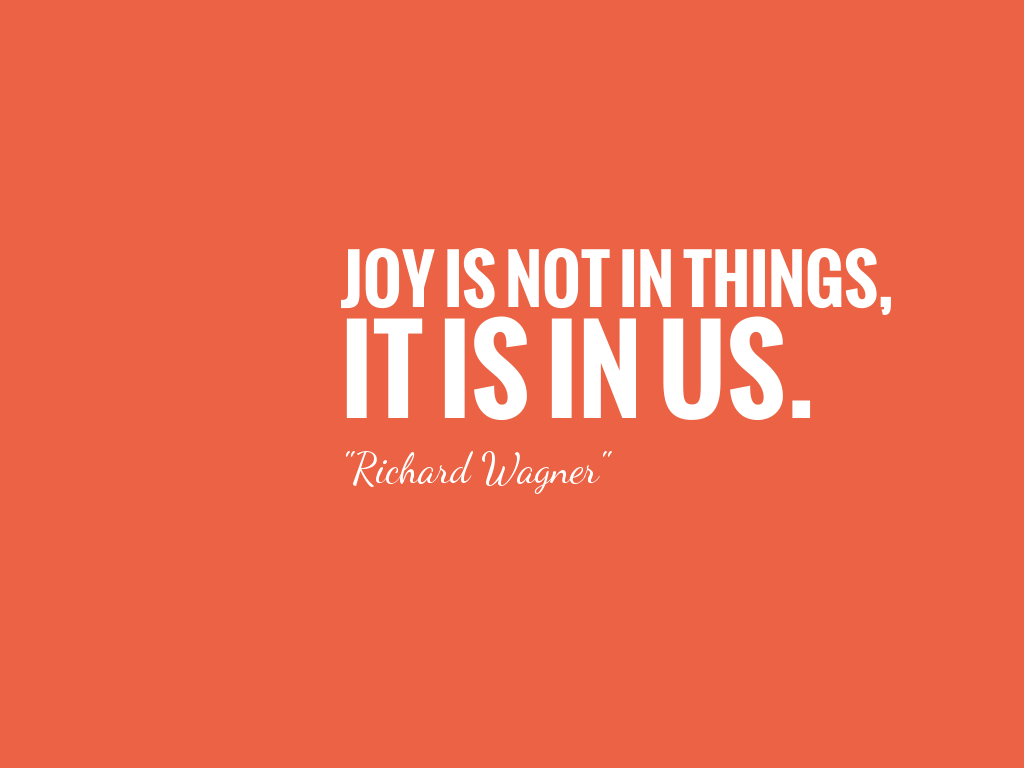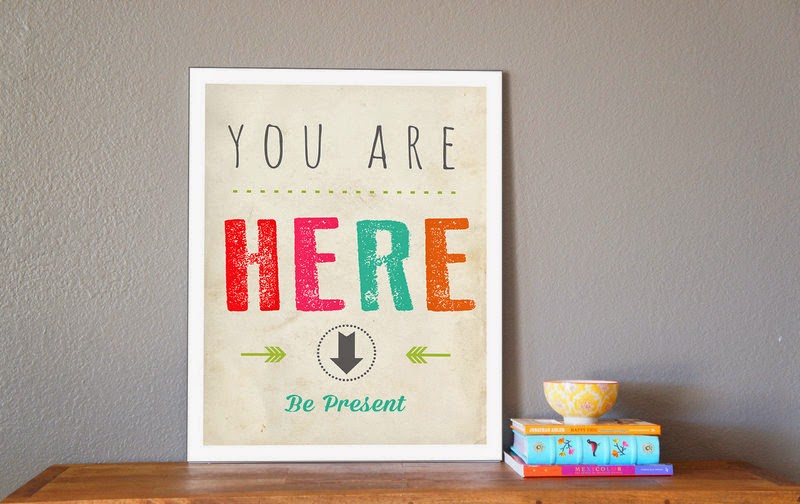
by Jonathan Manafo | Jun 17, 2014 | Sunday Conversations
Why is it that we are so prone to settle for less when we have the option for more? I don’t mean that we spend less, when we should spend more, or think we should acquire less when we deserve more. Far from that. In so many scenarios we end up choosing the second or third or even fifth best option. Think about what we choose to eat, or how we choose to use our time, or one of the biggest things, how we choose to spend our money. We know there’s a better way, yet we often opt for less.
My Dad was trained as a cabinet maker and always had this thing about buying ‘good’ furniture. He would go without a certain piece of furniture for months if it meant that he could have the right piece and the best quality. Why? He knew the difference. He knew that some furniture wasn’t worth the ‘better price’. He didn’t want to settle for less.
In Chapter 17 of Acts, Paul discovers a city (Athens) that is full of idols. We read that this distressed him – it concerned him. Why? We don’t walk downtown and get saddened by what we see? We normally take in the sights, find a great place to eat, and enjoy an evening out. What Paul found was overwhelming: A city that made gods like we make food. They turned them over like an assembly line. Gold, Silver, Stone, Shrines, Temples, Statues, etc. This hurt Paul at the core because his faith in Jesus is founded on a God who is jealous.
How does that make you feel? That God is jealous? The language we find in the OT is clear and wonderful. God wants us to worship Him alone. Exodus 20&32, Psalm 86, Leviticus 26, and other places in the scripture show us that God wants our full attention. The language of covenant is prominent in the Scriptures. Relationship language. When Israel was fooling around with other nations and other gods, God/Yahweh, was not just disappointed, but hurt. When asked what the most important commandment is, Jesus quotes Deuteronomy for 1/2 of his answer. “Hear O Israel, the Lord your God is ONE. Love him with all your heart, mind, soul and strength.”
You can see why Paul is concerned about this city: He knows that they are settling for less than what God has for them. They have settled for ‘g’ods they’ve created. He wants to introduce them to a God who created each and everyone of them (and us).
What are our gods today? In 2014? Just like in first century Athens, we have lots of options at our disposal, most of which we’ve created ourselves, or at least chosen to turn into a ‘g’od for our pleasure.
Tim Keller says that idolatry is taking some ‘incomplete’ joy and building your life around it. We start with good intentions, around things that are essentially good or neutral and we turn them into idols that we value more than, you got it, God.
Three of the biggest that grab our attention are Love, Money & Stuff.
Out of those, let’s just quickly talk about Money. We would be lying to ourselves if we said that we’ve never been tempted to elevate money to a ‘godly’ status. We don’t think of ourselves as greedy, only others. Jesus, when warning about not having two masters gets right to the point by saying, “You cannot serve both God and money” (Luke 16:13) He could’ve used any other ‘g’od metaphor, instead he used money. It’s our biggest distraction, always has been, always will be. One reason is because we never feel like we have enough of it. Let’s be clear, money isn’t bad, neither is love, and sex, and stuff. However, when it takes the place of God and when we settle for the feelings we get from those things, we are actually replacing God.
Here’s the lie: We don’t need anything when we have Money, Love & Stuff. But that is when we need God even more.
Ask yourself this: Do you trust God more or do you trust those other things more? Put it this way, what do you think you need to live well, Money, Love, Stuff or God?
The answer is this: When you love God more, you love others more. When God is who you trust, the other things fall into their proper place. When God is at the centre, the other things can be viewed in a healthy way. If God fulfills you more than anything, you’ll enjoy the other things properly.
So don’t settle for silver…or gold…or stuff…or ___________. Fill the longing in you with the one and only – GOD.

by Jonathan Manafo | Jun 9, 2014 | Sunday Conversations
Sunday at the Village in June & July we are back in ACTs. Since we’ve launched our church community we’ve gone in and out of a series called, “To Be Continued”. We felt that teaching through the early church’s story of
becoming would only help our new story of becoming (a church community) as well.
 As we arrive to Acts 17 we’ve seen so much happen. One thing that has yet to occur though is Paul teaching in front of a fully pagan crowd. By pagan we mean that none of them would be Jewish or God-fearers (people who were intrigued with and followed God’s story). The scene on Marz Hill (The Areopagus) is tense and exciting. Athens is a city filled with ‘g’ods, idols, and men who love new ideas. One thing they weren’t aware of was the Resurrected Jesus. Actually, they knew so little of him that when Paul spoke of Jesus and the Resurrection, they thought he was talking about two new gods, a male one in Jesus and a female one in Resurrection (word in Greek is connected to the word Anastasia). Even though they were confused, they were intrigued.
As we arrive to Acts 17 we’ve seen so much happen. One thing that has yet to occur though is Paul teaching in front of a fully pagan crowd. By pagan we mean that none of them would be Jewish or God-fearers (people who were intrigued with and followed God’s story). The scene on Marz Hill (The Areopagus) is tense and exciting. Athens is a city filled with ‘g’ods, idols, and men who love new ideas. One thing they weren’t aware of was the Resurrected Jesus. Actually, they knew so little of him that when Paul spoke of Jesus and the Resurrection, they thought he was talking about two new gods, a male one in Jesus and a female one in Resurrection (word in Greek is connected to the word Anastasia). Even though they were confused, they were intrigued.
Paul is invited to explain his ideas a little further among philosophers and thinkers. What comes next is an eloquent teaching about the one God, God the Father, Creator, Ruler, Judge, and of course (the resurrected) Jesus who was and is God in the flesh. What’s amazing is how Paul goes about his talk. He starts with a common ground: spirituality. The Greeks were very spiritual, they just weren’t very aware of…well…God. We see that lots today don’t we? People are are intrigued with spirituality, but are looking in the wrong places for the God who fulfills our spiritual longing. Paul identifies in the Greeks a longing for something more; something bigger than themselves. They worship ‘unknown gods’, and Paul sees this and invites them to know their creator, God.
When you read this story, you come at it from two different perspectives: One is the side of the Greek’s, the other is the ‘already’ Christ-Follower who is learning from Paul’s approach to sharing the Gospel.
If you’re the person, in the midst of a culture, full of idols, but still searching for more, this talk on Marz Hill should totally intrigue you. You don’t have to follow ‘made-up’ gods. You don’t have to settle for second rate deities. You can find hope and truth in the ONE God – in Jesus, the resurrected one. Small ‘g’ gods let you down. Here’s why? We made them up. We created them. We deem them worthy, even through they aren’t. Think about this: what’s your idol? What do you give ‘worth’ to? In 2014 we might not view idols in the same way. Actually, we don’t. But if we take a good look, we’ll see them all around us: our cars, our money, our houses, our stuff, etc. The challenge to you is…follow the true God. Follow Jesus. He’s the resurrected one, the creator, the ruler, the lover of our soul. He is a God who is BIG, yet at the same time very close.
If you’re already a follower of Jesus and wondering how you can introduce people to their creator, this is a great example that Luke & Paul give us. Paul’s talk was most definitely longer, but Luke (the writer of Acts) wants us to get enough of it to see the mastery of Paul’s ways. He doesn’t start with God, he starts with culture and ends up at God. He starts low and leads them up. Too often, the church has been accused of throwing the Bible in people’s faces. Rightfully so. We should learn from Paul and discover how to preach ‘to the word’ and just just ‘from the word’. You know the difference don’t you? The moments when you felt like the ‘preacher’ assumed you knew what he/she knew. Perhaps you even felt a little (or a lot) judged. This is when the one communicating the gospel assumes you know what they are talking about and where they’re coming from. In the former places in Acts, Paul is at least working with people who knew something of the story. It may not be the Jesus story, but it was at least the God-story of Israel. In Athens Paul’s audience is very different. Jesus & the Resurrection was truly a ‘new’ idea.
So read this text/story as you wish: as one who is new to the journey, or as one who needs some help in how to invite others to walk along side you. As always, let the story read you too.
– – – – – – – – – – – – – – – – – – – – – – – – – – – – – – – – – – – – – – – – – – – – – – – – – – – – – – – – – – – – – – – – –
(small group questions) Acts 17:16-32
This story begins with Paul waiting in Athens for his
friends to join him. Can you think of an experience when something significant happened
while you were waiting? (optional)
Athens was known for having lots of idols. Someone called it
a forest of idols. Durham wouldn’t be popular for the same bit of info would
it?
How would detect or define idols today? In our cities? In
our culture? Or is that even a worthwhile question to be asking?
Why do you think Paul’s message of Jesus being the only way
to the only God is hard to accept by some?
(Maybe Read Deut 6:4-5 & Mark 12:29-31)
This is the crux of what Paul is saying in Acts 17…what
resonates with you most? What causes some questions?
24 “The God who made the world and everything
in it is the Lord of heaven and earth and does not live in temples built
by human hands. 25 And he is not served by human
hands, as if he needed anything. Rather, he himself gives everyone life and
breath and everything else. 26 From one man he made
all the nations, that they should inhabit the whole earth; and he marked out
their appointed times in history and the boundaries of their lands. 27 God
did this so that they would seek him and perhaps reach out for him and find
him, though he is not far from any one of us. 28 ‘For
in him we live and move and have our being.’[b] As some of your own poets
have said, ‘We are his offspring.’[c]
29 “Therefore since we are God’s offspring…
God asks that we worship him only. But as we do, all other
things fall into their right place & perspective. What can you add or say
to that?

by Jonathan Manafo | May 28, 2014 | Sunday Conversations
It seems to me that we’re always settling for second best in our lives. We settle for friends who aren’t the best, we settle for a job that does not really fulfill us, we settle for entertainment that gives us a quick fix with no long lasting enjoyment. Maybe it’s because we’re conditioned to be consumers of stuff and not explorers of truth. That’s a heavy way to start a post, I know, but perhaps you’re identifying with this right from the start.
John Mayer wrote a song for his ‘Heavier Things’ album called ‘Something’s Missing’. He writes about things that have given him ‘some’ satisfaction, but in the end, after the things on his list are checked off, something is still missing. I think it’s JOY. One line in the second verse is telling. “I’m dizzy from the shopping mall, I searched for joy, but bought it all.”
You think in our search for happiness we missed the point? Maybe happiness is not what it’s cracked up to be – it is a temporary feeling based on emotions that are connected to circumstances or commodities. Tolstoy said that “Joy can only be real if people look upon their life as service and have a definite object in life outside themselves and their personal happiness.”
When you think about it, Jesus never offers us happiness, but he does offer us something better. That ‘better thing’ would be JOY!
From Israel’s years in Exile to Jesus’ parables about the Kingdom, God has been hinting at a JOY that is beyond compare. While Israel is stuck, literally in another land, words of hope through Isaiah were pointing a new experience of Joy that was just around the corner. What they didn’t know is that Jesus was waiting for them around that corner. In Matthew 13:44, one of Jesus’ parables on the Kingdom is about a man that experiences ecstatic JOY. Paul, in Romans describes the Kingdom of God as righteousness, peace and…you got it, JOY.
Jesus, in John 15 says that he came so that his JOY (God’s JOY) would be in us, and that the sparks of JOY we already sensed in us would be complete in and through him. Again, Paul, this time in Galations, describing what our lives would look like with the spirit of Jesus in us, says that JOY is a fruit or evidence of Jesus in us.
This why both James & Peter say that we can experience JOY when times are tough. How else could we consider trials a JOY. If JOY is in us, then no matter the circumstance it’s there – it’s ours. If we only shoot for ‘HAPPY’ then even though we’ll feel good for a bit, that feeling can be gone pretty quickly, but if we take Jesus offer of JOY we are going for the best, not the feeble competition.

This is our last post in our ‘So you Wanna be Happy?’ series. So lets ask and answer this one more time.
You wanna be Happy? Everything we’ve answered so far still goes – Forgive, Be Generous, Be Present, Be Thankful. But most importantly, let Jesus fill you with (his) JOY!
“JOY is not in things, it’s in us.” And it can only be in us because Jesus so graciously puts it there.

by Jonathan Manafo | May 26, 2014 | Sunday Conversations
We get it. If you’re happy you probably have something to be thankful for. But what about the days you’re not happy, can you be thankful on those days?
What comes first, being happy or being thankful? Great question. Happiness should lead you to say thank you, however, thankfulness will enable you to be happy.
Think about what these people have said:
“Thankfulness is the enemy of discontent and dissatisfaction.” (Harry Ironside)
“Joy is thankfulness, and when we are joyful, that is the best expression of thanks we can offer the one who delivers us from sorrow and sin.” (Thaddeus of Vitovnica, a Serbian Monk)
“Thankfulness creates gratitude which generates contentment that causes peace.” (Todd Stocker)
Paul, in Colossians, puts it simply, “Be Thankful”.
There are many places in your life to show gratitude. I think we can safely say that People & Circumstances are at the top of the list.
PEOPLE
At the beginning of each of Paul’s new Testament letters (except for Galations) we see a common theme: He’s always saying thank you! We read things like this:
– I’m always praying & being thankful for you…
– When I remember you I say thank you…
– I can’t stop thanking God for you…
– I name you before God when I pray…and I thank him for you…
Paul wasn’t known to really be a people person. So when you read this in each of his letters, you can assume two things: one, is that he was truly grateful for the people God had placed in his life, and two, he knew that being grateful encouraged those he was writing to.
Who are the people in your life you need to be (more) thankful for? Will you take the time to let them know?
CIRCUMSTANCES
Saying thank you is easiest when times are good. Even though we probably aren’t as grateful as we should be, it comes to us easier when nothing is going wrong and everything is going right.
In his book, The Year of Living Biblically, A.J. Jacobs expressed his new found awareness for being grateful for the simplest things.
“I can’t
stop. Just now, I press the elevator button and am thankful that it arrives
quickly. I get onto the elevator and am thankful that the elevator cable didn’t
snap and plummet me to the basement. I go to the fifth floor and am thankful
that I didn’t have to stop on the second or third or fourth floor. I get out
and am thankful that Julie left the door unlocked so I don’t have to rummage
for my King Kong key ring. I walk in, and am thankful that Jasper is home and
healthy and stuffing his face with pineapple wedges. And on and on. I’m actually
muttering to myself, ‘Thank you. . .thank you. . . thank you.’ It’s an odd way
to live. But also kind of great and powerful. I’ve never before been so aware
of the thousands of little good things, the thousands of things that go right
every day.”
How about saying thank you when things…aren’t so good? In Paul’s letter to the Philippians, he writes this, ‘not to be
anxious about anything, but in every situation, with thanksgiving, pray…I have
learned to be content whatever the circumstances.”
How can we be content in ‘whatever’ circumstance? That’s really hard. You’re probably saying right now, ‘don’t you know what I’ve been going through? I can’t imagine being thankful or content for that.’ However, you probably have a friend who has gone through some tough times and has been able to say thank you for the mess. I have. They’ve said things like, ‘I’m thankful for cancer. I’m thankful for that mess in my life. Etc.’ This is probably why Alexandra Elle can say, “I am thankful for my struggle because without it, I wouldn’t have stumbled upon my strength.” Here’s Paul again, this time in 1 Thessalonians, being thankful for all things. “Rejoice always, pray
continually, give thanks in all
circumstances; for this is God’s will for you in Christ Jesus.”
Take a minute…even 5…what circumstance do you need to be thankful for? Is it a good one or a bad one? No one said it was going to be easy, but it will make you happy!
– – – – – – – – – – – – – – – – – – – – – – – – – – – – – – – – – – – – – – – – – – – – – – – – – – – – – – – – – – – – – – – – –
small group questions:
Do you think gratefulness is a DNA thing or a DISCIPLINE we can learn? (maybe both?)
Where does our culture sit on this issue? Very Grateful / Kind of Grateful / Not so Grateful / Could care a less ?
Seems like Paul is grateful for people in his life? He uses up some valuable writing space in each of his letters. Why? And do you think prayer have anything to do with his gratitude?
Take time in your group to share why you’re thankful for 2 people: one being a family member or friend and the other an individual in your life (past or present).
How about circumstances? Specifically the bad ones. Why do you think, as people who follow Jesus, it is possible to be thankful in ‘ALL’ circumstances?
Paul uses the word, ‘content’ when referring to our circumstances. How do we get to that point in our life?
Can you think of a ‘rough’ patch in your life where you can sincerely say, ‘God, thank you for that’?

by Jonathan Manafo | May 13, 2014 | Sunday Conversations
We’re beginning to figure out that happiness is going to cost us something. When we forgive it costs us our pride and when we give (being generous) it costs us our stuff. What if we said that in order to be happy, it’s going to cost you your attention.
When you look back to people in your life that brought you joy, they are the ones who paid attention to you, the ones who were and are PRESENT. Who is, or was that person for you? Your mom? Your dad? Your BFF? How about a teacher or a manager or a colleague? You know the people I’m talking about – the ones who are (truly) ‘with you’ when they’re with you.
Let’s face it, not everyone has this gift; the ability to be present in the moment, so the important conversations or opportunities don’t slip away. We don’t mean the opportunities to make you rich or drive your career, but the ones that build relationship with the people you care about the most.
Interruptions can be a hassle. Think about it, you’re on your merry way when someone ‘interrupts’ your plans. For those of us who are more task driven, this can really drive us crazy. But what if the people in our life were not viewed as interruptions, but opportunities to grow relationship and make each other better. Henri Nouwen (a famous professor turned spiritual director/servant) once saw students as interruptions, until he realized that more than research and academics, they were the purpose of his calling – they were his business.
Jesus was well documented as taking interruptions in stride. More than that, he welcomed the person in need who interrupted what he and his disciples had on the agenda that day. We learn from Jesus as much as anyone else, to welcome change in our schedule and see what God has in store for that ‘moment’. We can pick two spots in the gospel (out of many) that highlight this. In Mark 10:13-16, Jesus welcomes children to his side. When others thought they might be a nuisance, Jesus says, “Let the kids come to me. Don’t stop them. The kingdom of God belongs to people like them.” This is in a society where children were to be seen and not heard. In another instance (Luke 10:38-42), we find Martha & Mary entertaining Jesus in their home. The traditional take on this story is that Jesus honours Mary for being present with him, while Martha is cooking. There’s a little more to this story. In the 1st century, there were places for men and places for women. Men were found in the common rooms, the places where learning and conversation happened. Women were found behind the scenes (kitchens and working rooms). Never were the two spaces brought together. So when Mary chooses to be with Jesus, she’s crossing an invisible (social) barrier. She’s saying that she doesn’t care about what other’s think, she wants to be with and learn from Jesus. Even more significant is that Jesus welcomes this and doesn’t shun her away. He also breaks the barrier so that he can be present with her.
What’s the best way to be present with others? The art of Listening. James says (1:19) that we should ‘be slow to speak and quick to listen.’ If we just took this verse and others in the scripture more seriously, we’d be more present and seize the important moments in our lives. Listening is both a genetic skill and a learned skill. However we acquire this skill, we need to add it to who we are and how we interact with others. If we do, we’ll be able to ‘practice the presence of people’. We wanna be happy, but we often make the mistake of using selfish means to get us there. In this case, happiness/joy will cost us our attention. However, Being Present with people, (truly) being with them, will add value to their lives and bring us much joy in return.
Mitch Albom (in his book, Have a Little Faith) says this about his childhood Rabbi, “He had a way of looking at you in the eye and making you feel like the world had stopped and you were all that was in it.”
I want to be known for that. How about you?
(check below for some bonus footage)
– – – – – – – – – – – – – – – – – – – – – – – – – – – – – – – – – – – – – – – – – – – – – – – – – – – – – – – – – – – – – – – – –
small group questions:
Talk about someone in your life that really listened to you. Someone who you felt was present. How did that make you feel?
Jesus seemed to be in the ministry of interruptions. On numerous occasions he welcomed the person vying for his attention. These turned into powerful moments of healing, help, wholeness. What can we learn from Jesus in this? How hard is it for us to implement this in our lives?
When you read the Martha & Mary story, what do you get out of it? (Luke 10:38-42)
Read James 1:19. Nice to read, but hard to execute? What are some ways this can be true for you and the (important) relationships you’re in? Any initial steps you can take to be at James advice for us? (cf Proverbs 10:19, 17:28)
(bonus footage)
Tips to Listening:
– stay focused on what others are saying, not on what you want to say
– watch your body language
(conversations are 3 parts: 7% content, 38% tone of voice, 55% non-verbal communication)
– think about the differences between you and others (gender, generational, etc.)
– put down what you’re working on
– find something to value in the other person
A blog post about the ‘one word’ I wanted to focus on in 2014 (inspired by Thalita Murray’s blog)









